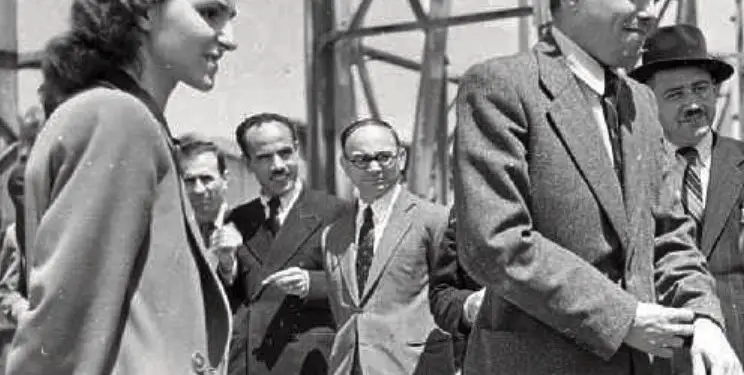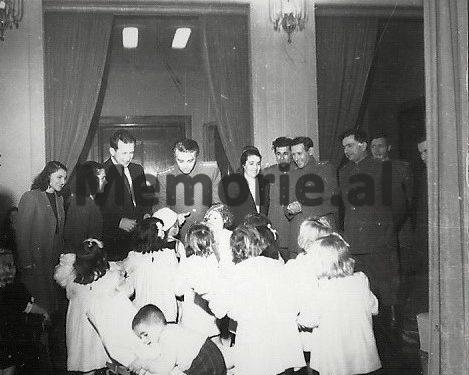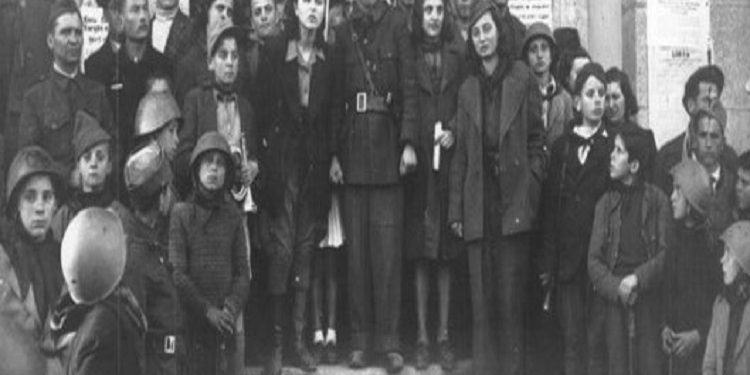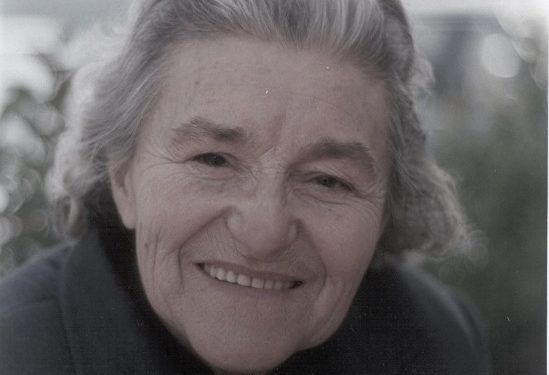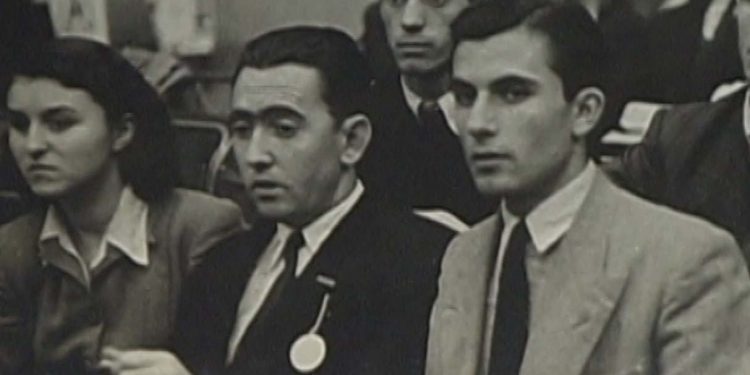The fifth part
Memorie.al / Liri Belishova, former senior official of the Albanian Youth and Communist Party, since the end of the War, member of the Political Bureau and secretary of the Central Committee of the PPSh, until 1961, who was then shot and was sentenced by Enver Hoxha, ending the family prisons and exiles for three decades in a row, in one of her interviews, shortly before she died, she would confess many episodes related to her life, but also all the privations that followed her family, until the collapse of the communist regime, at the end of 1990. In this long interview, she tells many other episodes related to the death of her ex-fiancé, Nako Spiru, but also many murders, imprisonments, exiles, and other persecutions that Enver Hoxha and the Albanian Communist Party undertook against their friends and comrades-in-arms, people and personalities with a lot of contribution during the War and after it.
Continues from last issue
It is the political conjunctures and some special “skills” that the dictator needs. Koci Xoxe has been close to Enver Hoxha for a long time, but I have the impression that Enver Hoxha accepted Koci Xoxe as a “working class”, he did not like him, and even had some disgust towards him; The Yugoslavs imposed it on him, and when he was freed from them, he was also freed from Koci Xoxe.
After the 1st Congress, when I was in the Political Bureau, the party and the state were, of course, led by Enveri, but next to him was the Secretariat: Tuk Jakova, Bedri Spahiu and Mehmet Shehu. Then, when according to the Soviet experience, the Secretariat changed its function, that is, the Bureau was the main one and the Secretariat headed the apparatus of the Central Committee, the Defense Council emerged. The most important things were not discussed in the Bureau, but in the Defense Council. Enveri was the chairman and members were Mehmet Shehu, Hysni Kapo and Beqir Balluku.
For Mehmet Shehu, I say that his son, Bashkimi, has shown himself to be very level-headed, because he has divided: Mehmet Shehu is my father, but as a collaborator, an accomplice of the dictator Enver Hoxha, I condemn him. Something Enver Hoxha’s sons and their daughters-in-law are unable and unable to do. I make a distinction between Enver Hoxha and Mehmet. Talking to fellow veterans, I notice harsh criticism for Enver and not love, while they criticize Mehmet, but still say they love him.
I bear in mind my fellow veterans, that there are some whose brains are “hardened” and will probably die that way; they even call it “rapprochement” that they have left behind, forgetting that the Marxist dialectic accepted as the main objective law, the development of nature, human society and thought. Truth is verified in practice, in life. You can’t eat “cheese soap” all your life.
What did Mehmet Shehu have more than Enver Hoxha?
First, Mehmet Shehu had fought in Spain and if we talk about personal merit, he was the most prominent figure in the Anti-Fascist War. Enver Hoxha has never once called him “bam” and it is to the shame of his wife, etc., that they have called him a “genius strategist”. Where is the genius of this “strategist”? He is responsible for two of the main defeats of the National Liberation Army, in the district of Tirana and in the district of Elbasan. Secondly,”!
How do you spend your time?
The consequences of punishment continue for many years, as do the consequences of war. The war for the governments ends with the armistice, but the disabled, the sick, etc., continue to suffer for a long time. Can you imagine how hard it is for our six families, mine and my five brothers? 30 years of persecution, completely ruined economically. Suffice it to say that we solved the housing issue only 2 and half years ago.
Or that, despite all the tiresome efforts, I still do not have the status of persecuted, while Koci Xoxes, they have given it! There are such absurdities. Life is very difficult. My husband and a brother died and I say their lives were cut short by persecution. My husband, Maqo Çomo, has served 27 years in prison; the three easiest years were the years of exile in Cërrik.
I am active with the veterans of the Anti-Fascist War, OBVL, that part that has been separated from the Committee of Veterans. Our request was to maintain an open position, condemning the dictatorship and the dictator Enver Hoxha. They refused and we left.
What do you think about what is published in newspapers about the National Liberation War and the period after the War?
It is natural to be interested in the past. I think a lot is published, but in many cases the quality is poor. History is a matter of great importance, with great responsibility. The media should turn more to historians, serious researchers.
The overthrow of the dictatorship has created conditions to make real analyzes based on documents, reflecting objectively, without the prejudices of the historiography commanded to praise Enver Hoxha and the dictatorship.
The more objective these historical analyze are the more valuable they will be for the overall development of the Albanian nation and vice versa. It’s like a doctor’s diagnosis: only if it’s correct will the cure be prescribed for the patient’s recovery, the opposite is known what the consequences are.
It is my long-standing wish that the Institute of History at the Academy of Sciences, in collaboration with the Faculty of History, the State Archives, etc., have a plan for various issues of the history of the Anti-Fascist War and the period of the dictatorship, on the parties political, on the personalities of that time.
These should be proposed to different researchers to write monographs and these monographs should be discussed in consultation with researchers and witnesses of that time.
For example, the importance of LANC and the place it occupies in the history of Albanians is it a civil war as some wrongfully claim, etc.
The NPSH, its role and policy during the War, why did the just and heroic war result in a bitter victory?
Non-communist political forces such as “Balli Kombëtar”, “Legaliteti”, etc., who and how much fought against the occupiers, who and how cooperated with them, why the communists won (young and unknown) and they lost (the ruling class of Albania) etc. .
More important is: the policy of Enver Hoxha’s NPSH for Kosovo and in general the other half of Albania that was left under occupation by the 1913 Conference of Great Powers, did he use all the opportunities offered to him precisely by the declarations of Lenin and the Party Communist etc. Because this issue was as important as the fight for liberation from fascist and Nazi occupiers. What did Enver Hoxha and the NPSH do during the war and after? I’m sorry you didn’t ask me a question about that, but we’ll have another chance.
I will not go on with examples. Drawing lessons from history, seeing where the positive sides are, parting with the evil past, is very important. The sick mentalities of the past make current developments more difficult; prevent doing what is needed for Kosovo, etc. Memorie.al




